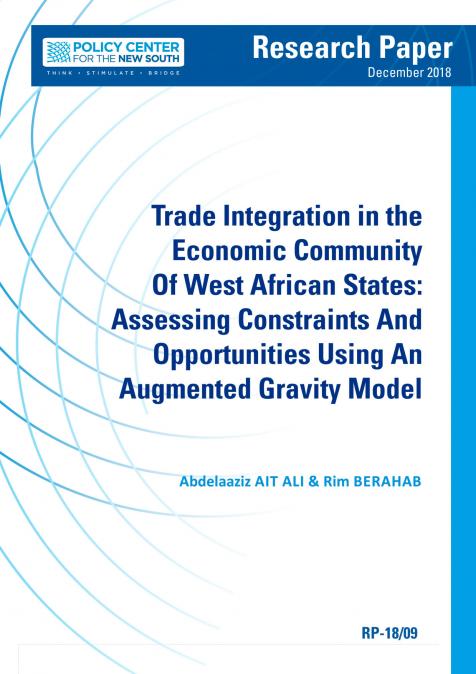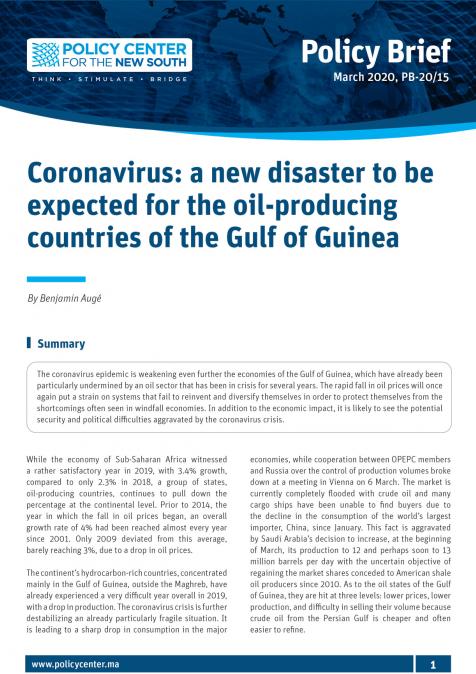Publications /
Research Paper
This study assesses and compares the determinants of intra-trade in the Economic Community of West African States (ECOWAS) and the Association of Southeast Asian Nations (ASEAN).
Regarding the adopted methodology, we estimate two versions of the gravity model over intra-trade. For the two communities, the first model captures standard effects of the exporting and the importing economic size, the distance, contiguity, while the second model incorporates, as additional explanatory variables, the quality of infrastructure and the bilateral complementarity. The Pseudo Poisson Maximum Likelihood (PPML) technique is used to offset the systematic heteroscedasticity bias. The results show that the effort of export in ECOWAS captured through the elasticity to export is surprisingly higher than the ASEAN, once we control for the infrastructure and complementarity. Transaction costs, captured, inter alia, through the landlockness variable, are very informative in this case, as they has lost significance in the augmented gravity model mainly for the ECOWAS, meaning that what matters the most in this case is infrastructure base and complementarity index that allows the country to overcome geographic constraints. Then, we simulate the potential or the theoretical trade within the ECOWAS and compare it to observed data, using the coefficients estimated over the ASEAN. Results suggest that trade potential within the ECOWAS, remains below the potential given by the gravity model, especially for small economies in the community. This calls for pro-active strategic policies that aim to reap the benefits of trade liberalization and fulfill the potential. This comes through closing Africa’s infrastructure gap to reduce trade costs and the promotion of economic diversification. In fact, estimation results display higher sensitiveness to infrastructure and complementarity indexes in the ECOWAS than the ASEAN. Nonetheless, trade dynamics are more complicated and depend on several factors of which the centrality of local product competitiveness. The latter can indeed determine how far ECOWAS’s products can replace foreign products at least in the domestic market. A brief analysis of revealed comparative advantage (RCA) shows that aside from primary commodities, the majority of products imported by the ECOWAS are supplied by other countries who have a stronger RCA.





